Indoor Jungle Workspace in Texas
“Having both my work and play computers set up in a way that allows me to use them simultaneously is really the best part”
Being productive at home is about getting the right things done, not everything done. That's why we built Bento Focus.
Name: Reggie, or Hits
Location: Texas, US
Occupation: Tech support
Room size: 20 m² (215 ft²)
Cost of setup: in the range of $7K
Social media: Twitch, YouTube, X
Hello! Tell us a bit about yourself
My name is Reggie, or Hits (short for Hitsupod).
I’m a freelance full stack developer, currently working as a tech support agent.
I’m a hobbyist; I enjoy creating things, from photography and tufting to thrifting and fixing things up.
I have five dogs who are the start and end of my days, and a bunch of plants for the in-between.
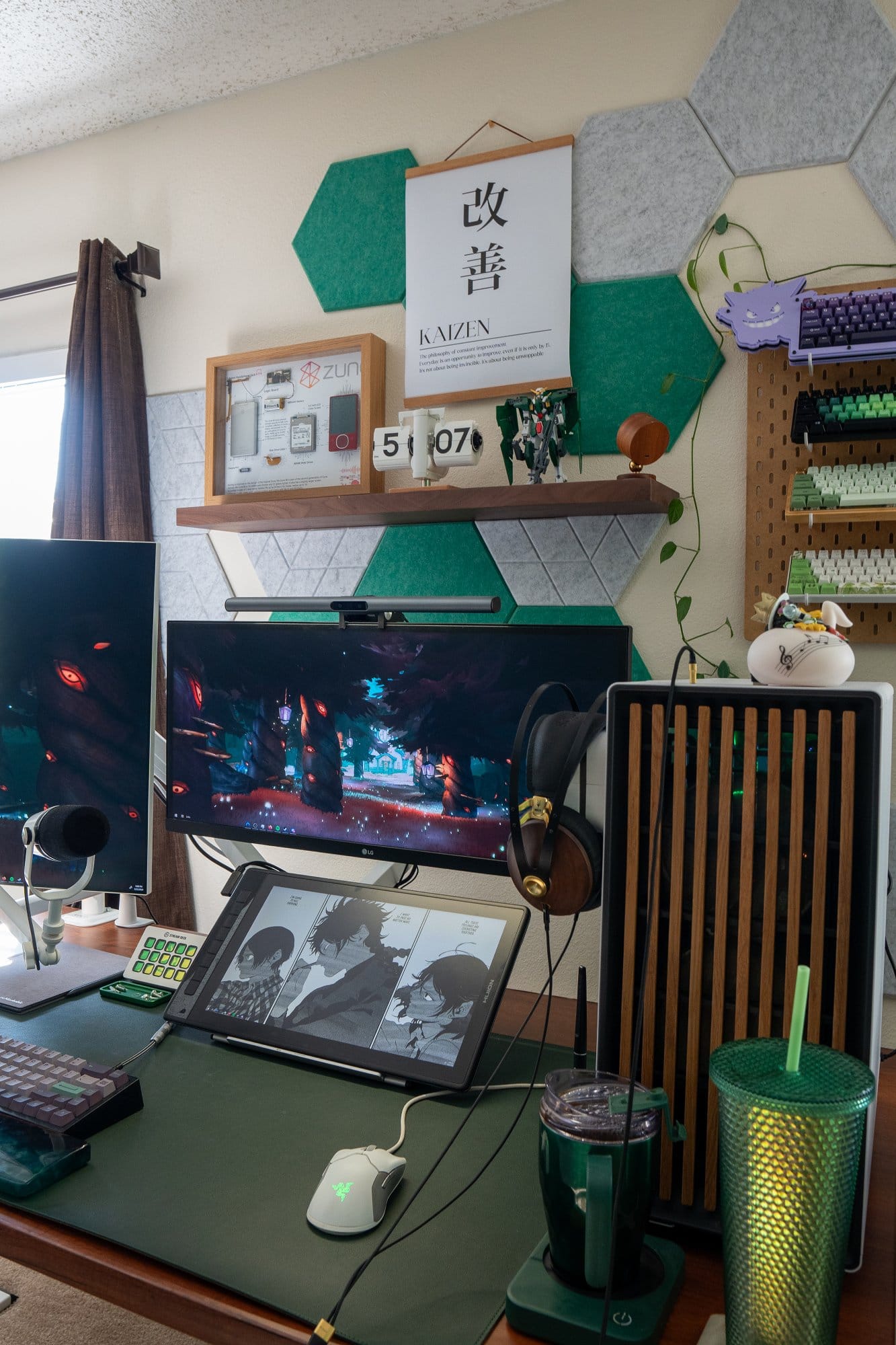
How did I become me?
As Jordan Peele once said:
“It’s coffee and weed.”
I stream weekly coworking sessions and am looking to get into YouTube vlogs and productivity content as well.
I’m Texas-based, travelling between San Antonio and Austin a bit for all things One Piece and Digimon TCG.
I’m a big fan of reading manga and have been reading for over a decade.
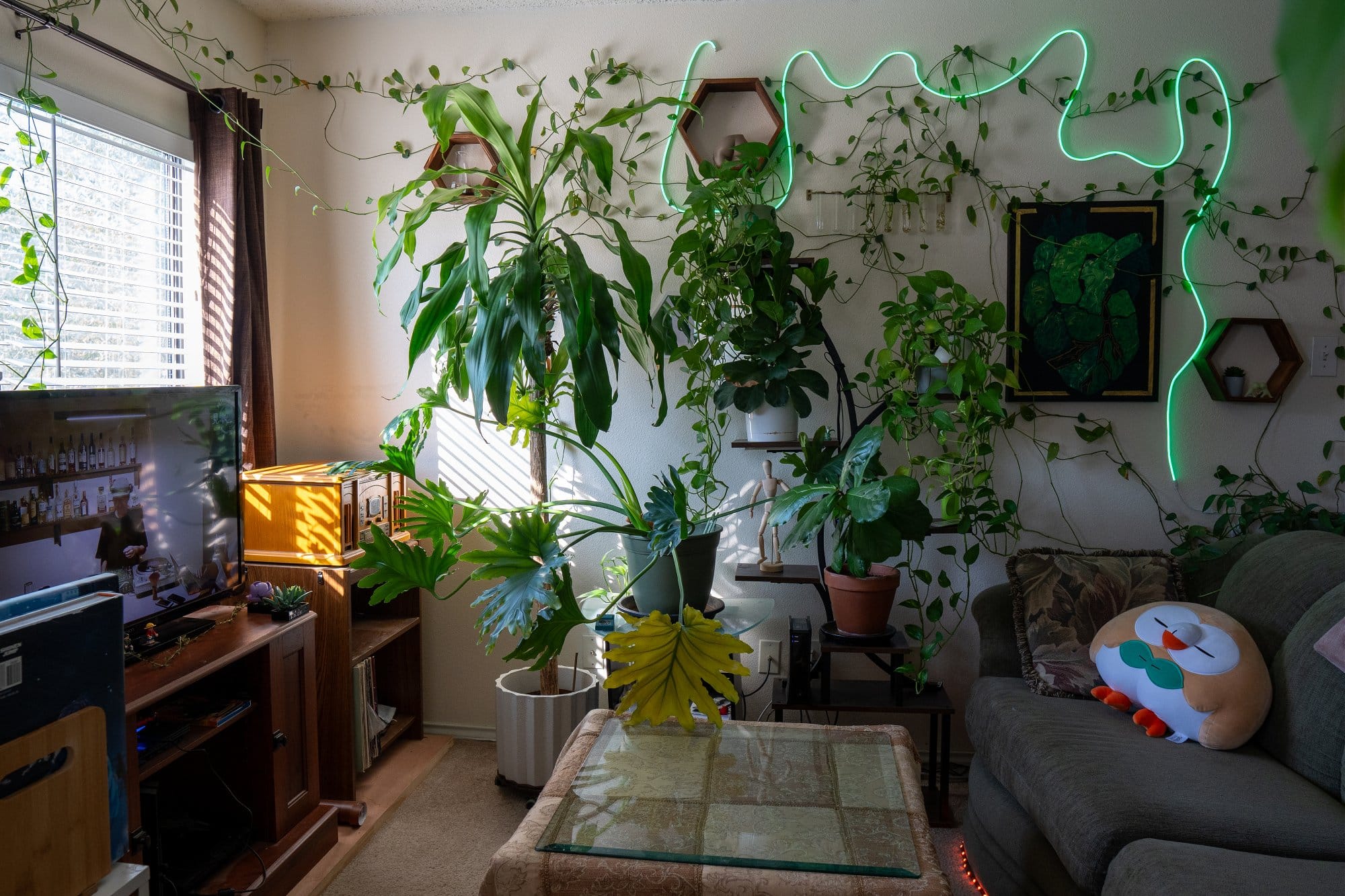
Take us through your setup
| Item | Model |
|---|---|
| Monitor | Samsung Business SH850 Series 24-inch LG Ultrawide 29-inch HUION KAMVAS Pro 16 2.5K QHD Drawing Tablet |
Monitor mount | VIVO Articulating Dual 17 to 27 inch Pneumatic Spring Arm |
| Monitor light bar | XINBAOHONG Screenbar E-Reading LED Computer Monitor Light Task Lamp |
| Laptop | MacBook Pro 2022 |
| External GPU | GIGABYTE GeForce RTX 3070 Ti |
| Speakers | JAYINE Cassette Portable Bluetooth Speaker |
| Headphones | Meze 99 Classics |
| Keyboard | NK65 Superuser |
| Mouse | Razer Viper Ultralight |
| Desk pad | 47×23″ Leather Deskpad (Dark green) |
| Laptop stand | HumanCentric Laptop Holder |
| Web camera | Sony a6000 |
| Tablet | reMarkable Tablet |
| Controls | Stream Deck |
| Chair | Generic gaming chair |
Being productive at home is about getting the right things done, not everything done. That's why we built Bento Focus.
Some of my favourite parts are the vine wall of a Monstera Adansonii I got in 2019 that’s grown multiple vines over 10 feet long, a custom built PC with the North Fractal tower case, and most recently, I made one of those retro framed shadow box pieces featuring a Zune MP3 player.
Having both my work and play computers set up in a way that allows me to use them simultaneously is really the best part.
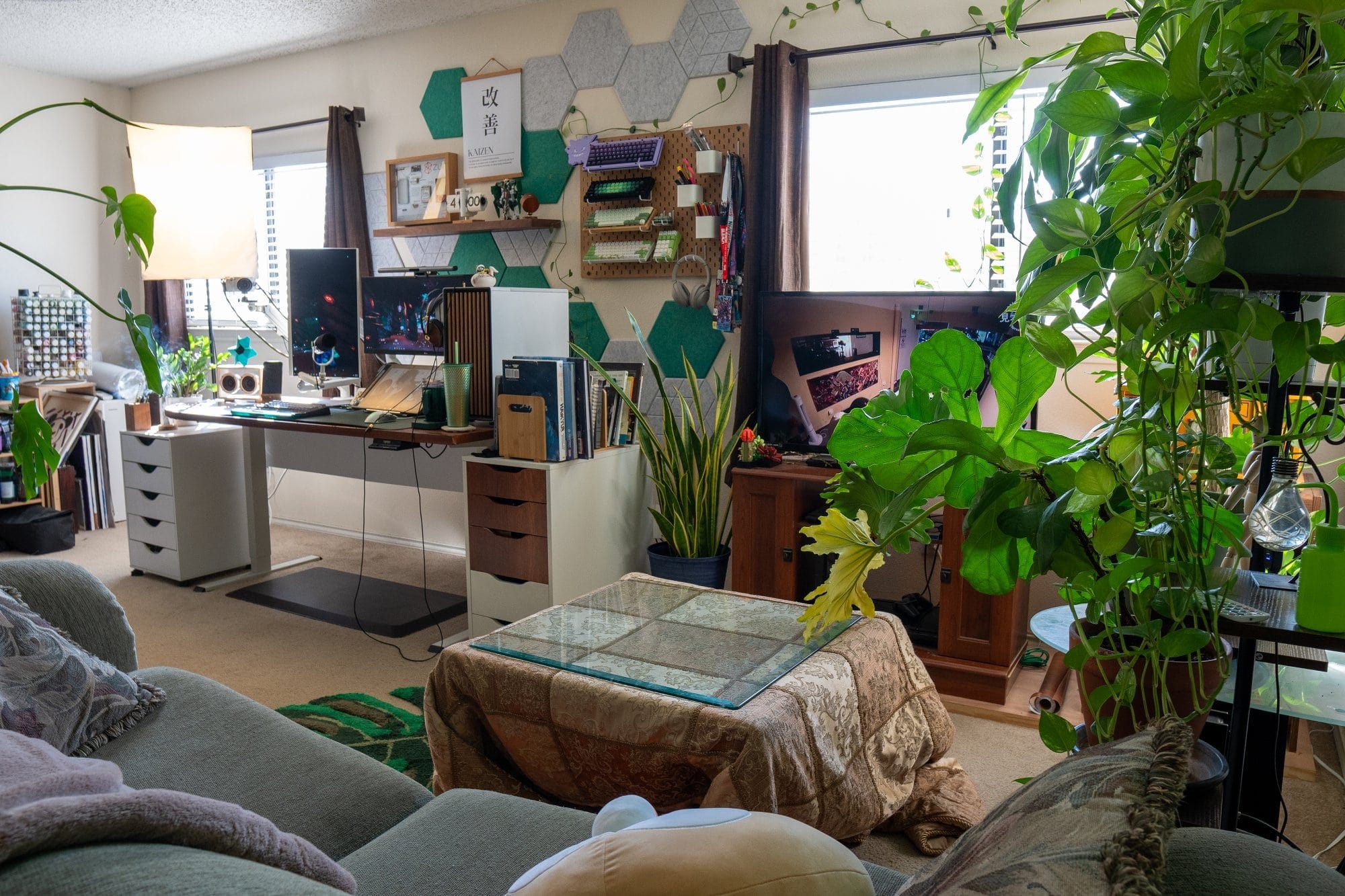
I stream coworking sessions a few times a week, and it helps me stay productive while also enjoying my job in a unique way.
I’ve been working remotely since before the pandemic, so I’ve been refining my space for a few years, with many iterations.
I started in a spare bedroom home office, and today, I’d say the inspiration behind my setup comes from loft/art studios, with the focus being both functional for work and hobbies/interests.
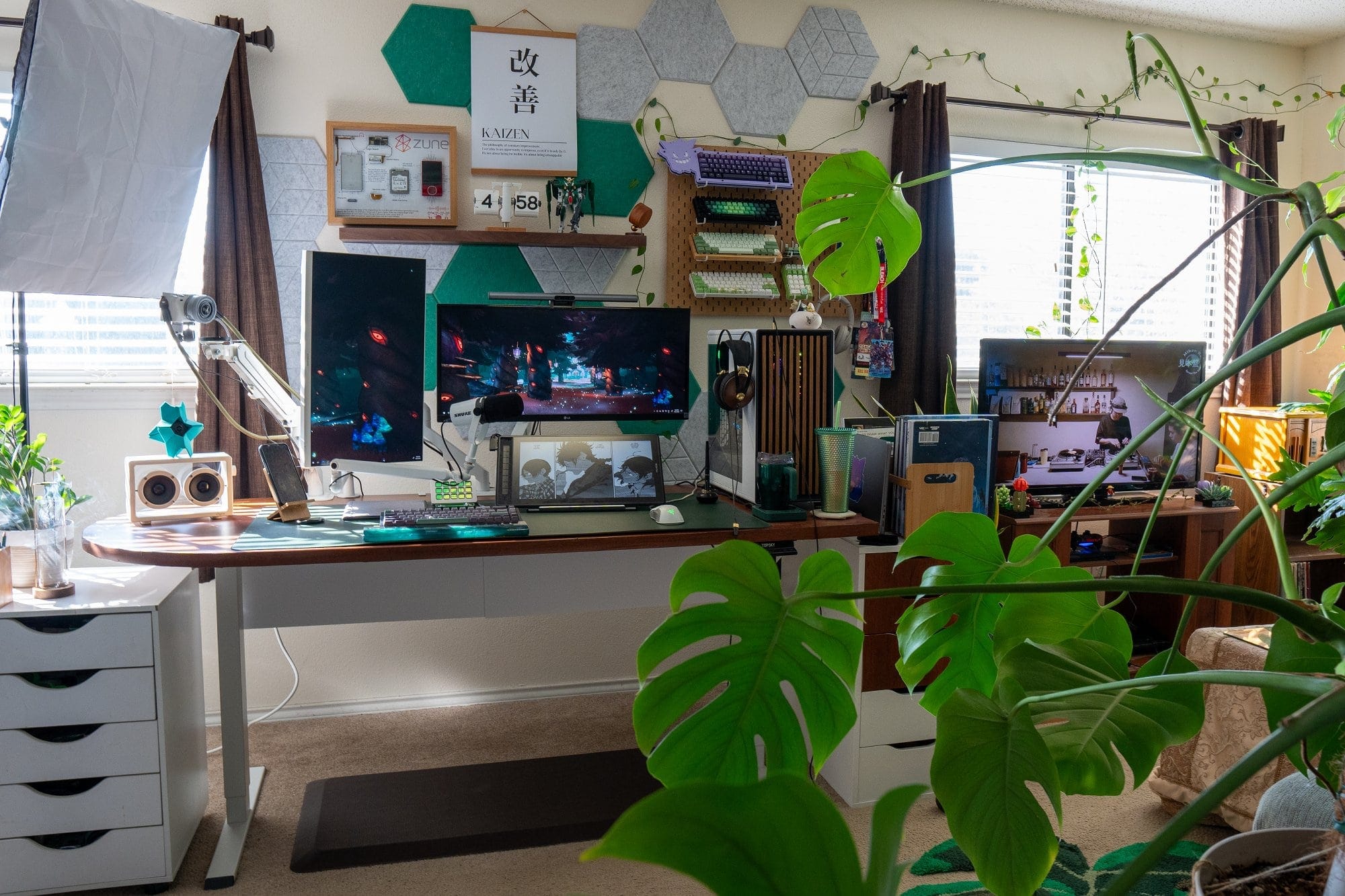
I’m both a tech and an art person, so the setup embodies both.
My desk is really minimal, with two main monitors and a third monitor/drawing tablet, which lets me do everything.
The only accessories are a reMarkable writing tablet and a Stream Deck.
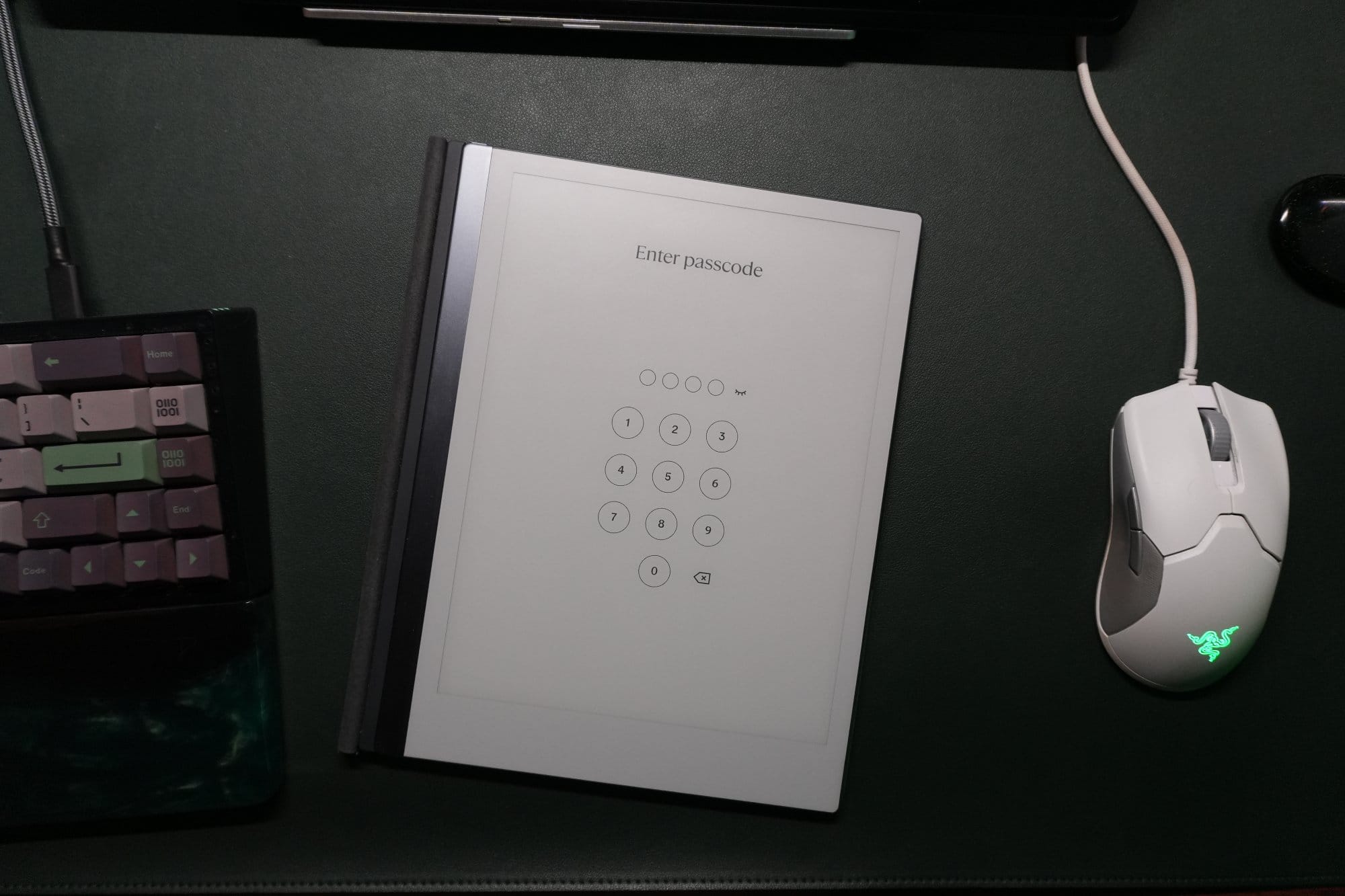
I’ve taken a lot of inspiration from different setups I’ve seen on Maker Stations, and I believe my setup fits because my style is quite unique.
I really try to find more refurbished furniture and even tech, but making sure it’s still good quality while fitting the vibe can be a struggle.
Due to the number of plants, having plenty of natural light was definitely necessary, but outside of having larger windows, overall I’m happy with what I can get.
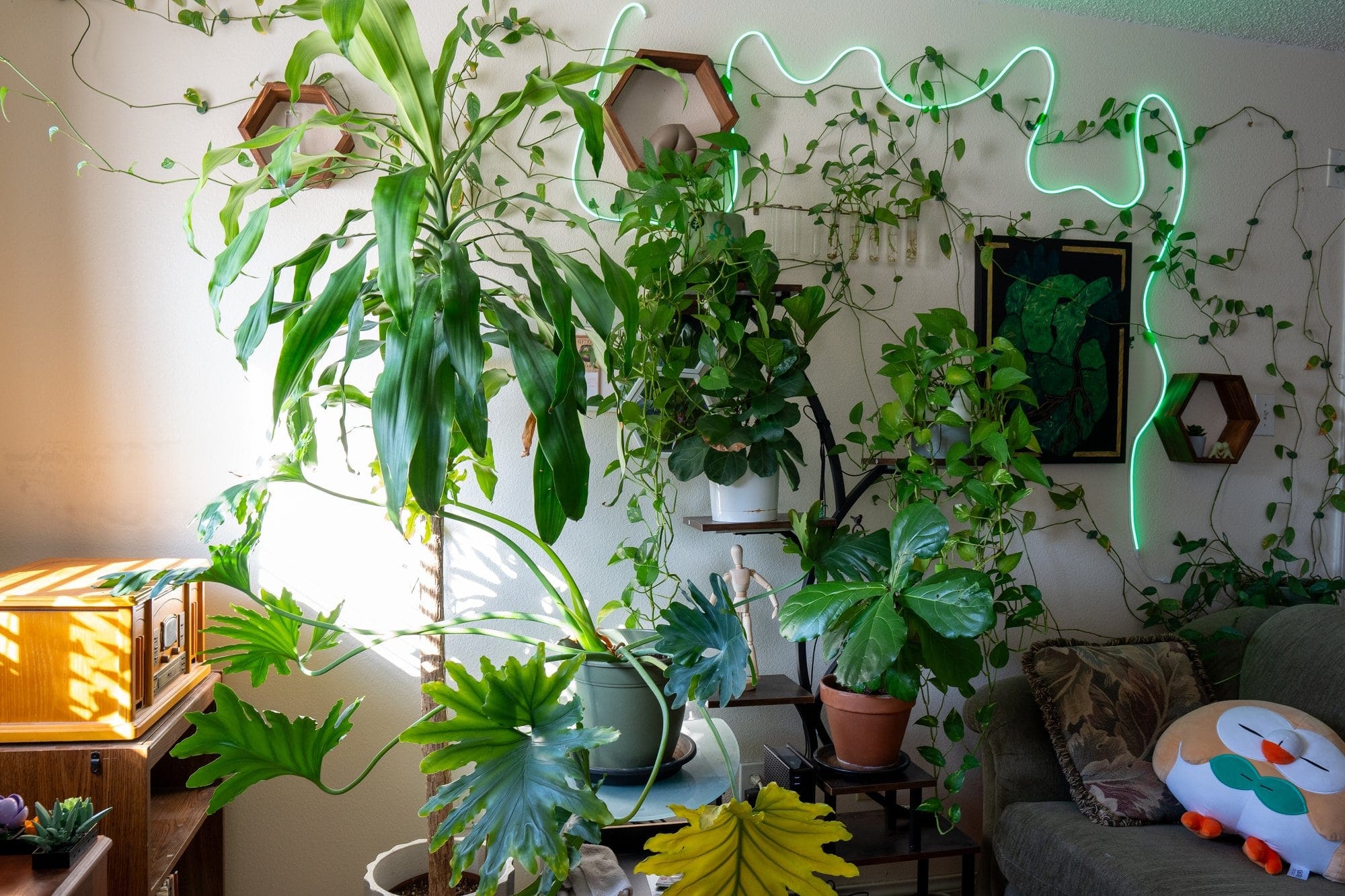
As for the next item or ways to improve things, I’ve been learning both digital and traditional art lately, so I’d like something for my digital tablet to sit on —something with a more easel-like design that’s adjustable but doesn’t take up too much space.
I also recently joined the group buy for the Theseus75 because the flexibility of a split board would really work for me.
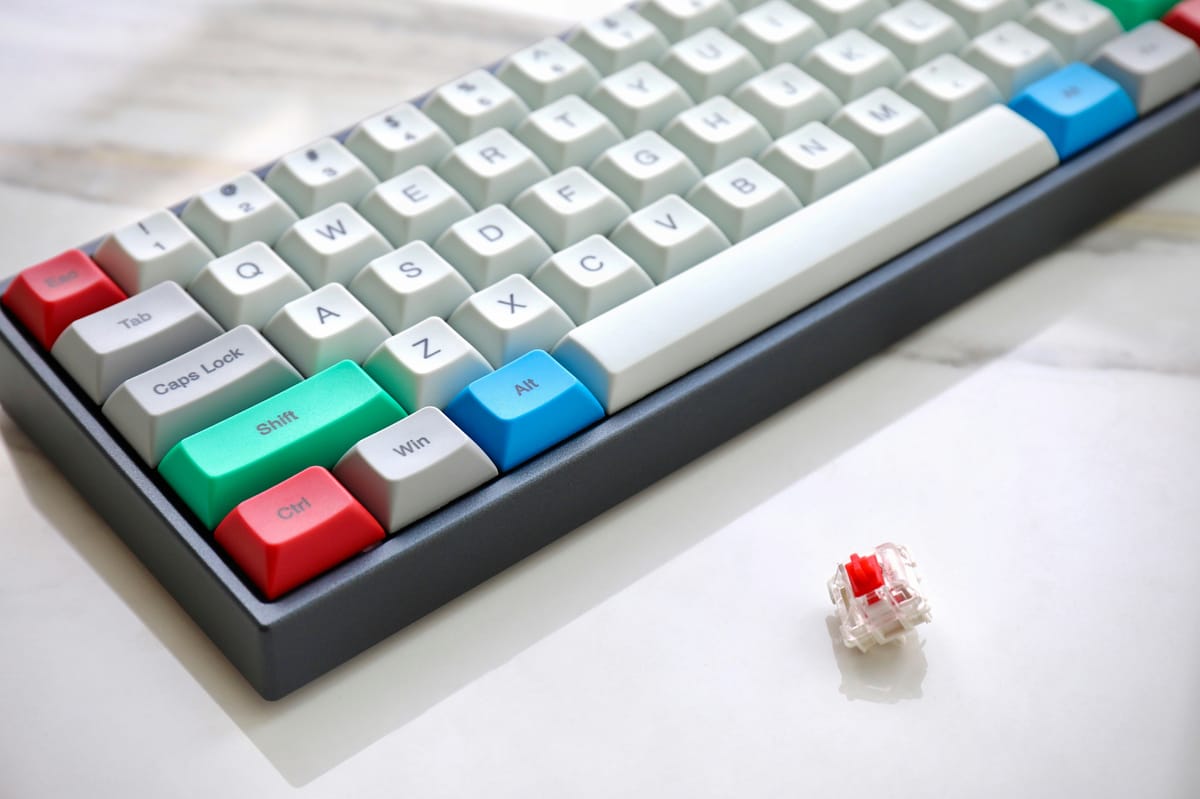
What’s your favourite item on your desk?
My favourite item on my desk, by far, is my reMarkable tablet.
I got it in 2022 on a whim, as my job had a learning stipend that was 'use it or lose it' (currently going for $450).
Around the same time, I started reading The Artist’s Way by Julia Cameron, which introduces an exercise called morning pages — writing three pages a day of just thoughts, ideas, anything really, with the goal being to simply write.
This has become an almost daily habit for me, though it’s not always three pages, and I’ve missed some days.
Writing on the tablet has become therapeutic and quite routine, so outside of my computer and phone, it’s the device I use the most.
What apps or tools do you use to get things done?
My go-to app, like I’m sponsored by them, is Notion.
I’ve used Notion to capture different eras of my life since 2019, creating what I call my “Life Architect” with daily, weekly, monthly, and yearly pages, journaling my life.
I love it because I’ve used it as essentially a second brain; it helps me keep track of ideas, goals, and more.
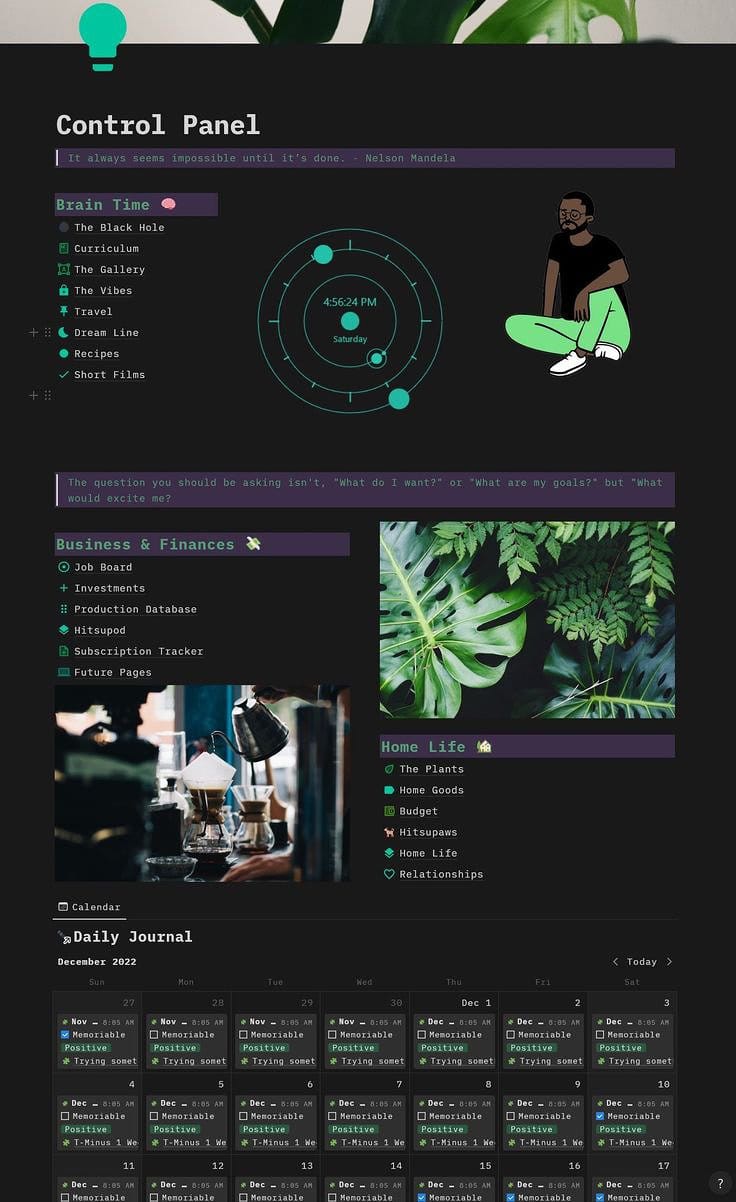
What books, blogs, or podcasts recently caught your attention?
The most impactful book I’ve read recently is The Artist’s Way by Julia Cameron.
It’s designed to help artists unblock their creativity, but I’d recommend it to anyone looking to change their perspective on their craft.
Morning pages are amazing for holding yourself accountable, and writing is such a good habit to develop.
Any tips for other makers who want to improve their workspaces?
In my opinion, a person’s setup should be authentic to them.
From small home office accessories to PC tower cases, how someone builds out their setup should reflect who they are.
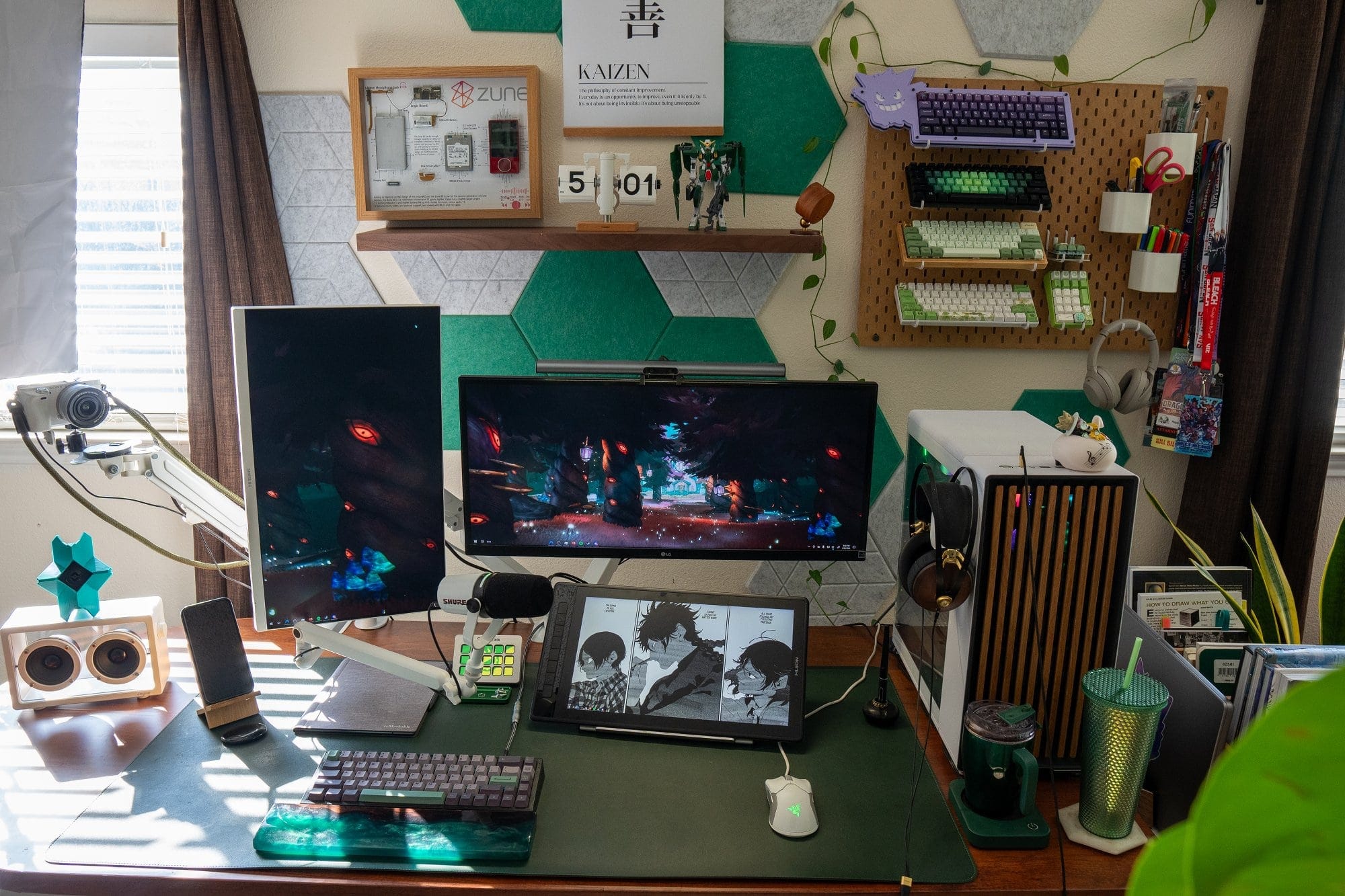
I’d also say that nothing you do is permanent, so try new things — don’t feel like you can’t switch styles just because you’ve invested in one direction.
If you look at my setup five years ago, it looked like I was trying to be sponsored by Razer.
What does your typical day look like?
My day starts with my dogs around 8 am, letting everyone out and getting them fed.
Then I get my breakfast and coffee ready.
I like to start my day with my morning pages, setting some intentions for the day, writing down ideas, and generally reflecting on how I’m feeling. It’s a good way to ground myself for the day.
At 9 am, my workday starts.
I check Slack for updates and emails to see who’s gotten back to me and what work I might need to continue.
Depending on the tickets I’m working on, I like to warm up with some easy ones before tackling the bigger or ongoing issues.
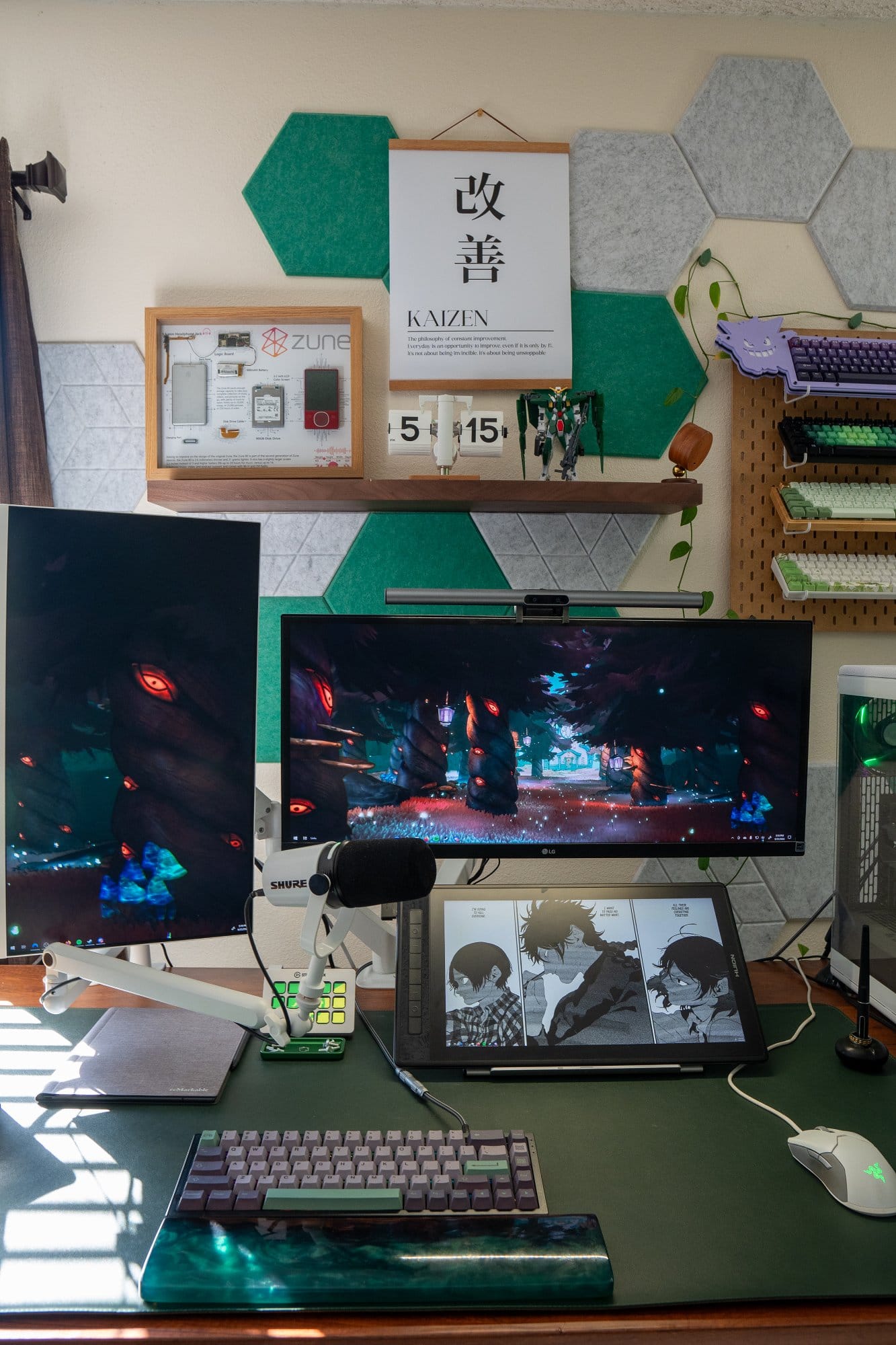
Around 11 am, on an ideal day, I’m ready to start coworking streams.
From there, I do 60/10 Pomodoro timers — 60 minutes of work followed by 10-minute breaks, though some breaks might be longer.
This goes until around 5 pm, as I’m a firm believer in the 9-5 routine. As long as I get my work done, there’s no reason to go over.
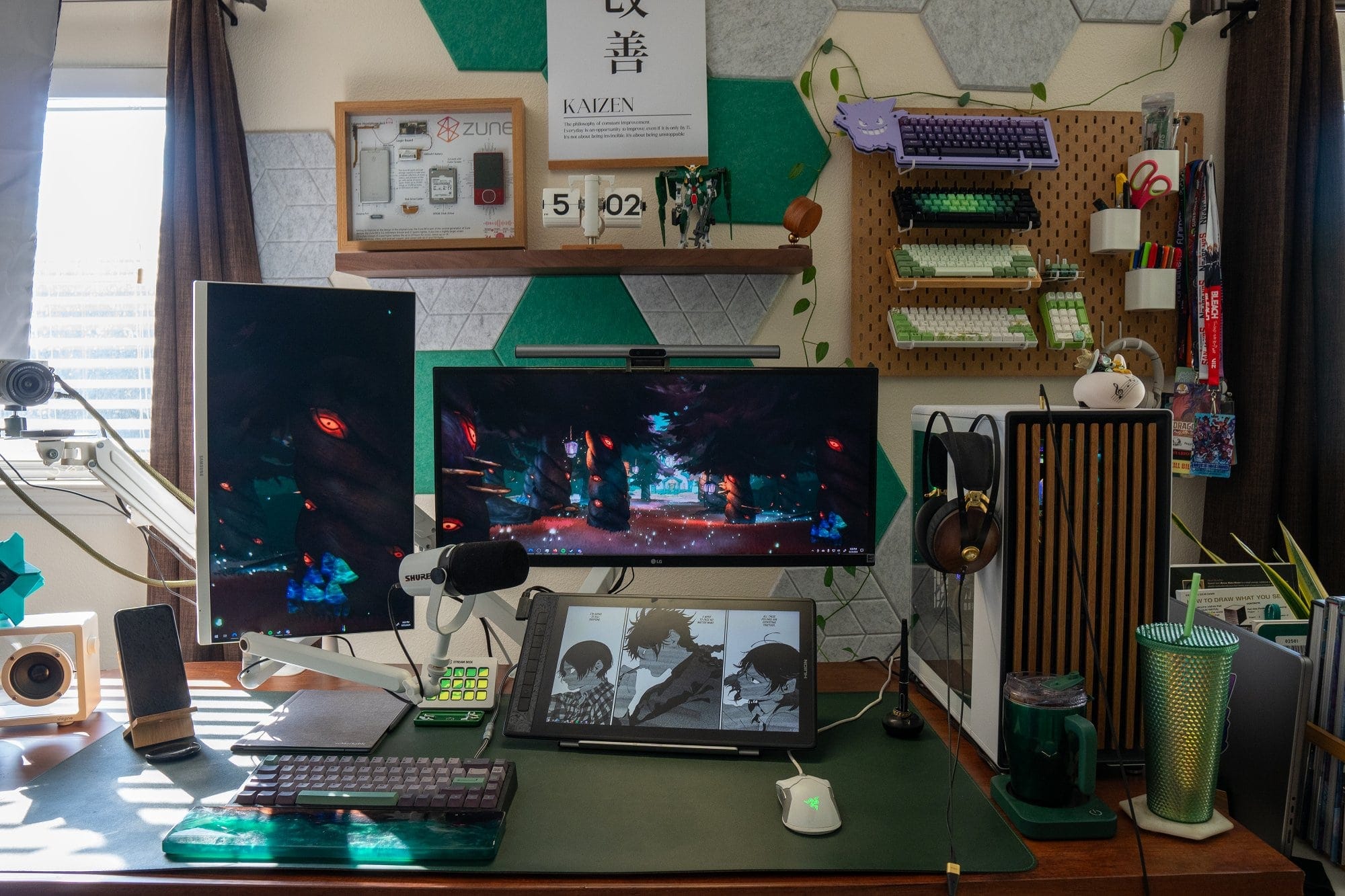
After work and streaming, I like to spend at least 20 minutes on the treadmill, either walking or running, to decompress.
My evenings vary depending on the day. Sometimes, I’ll just play games — lately, I’ve really been enjoying Warframe.
I know I’m late to the game, but it’s honestly so much fun.
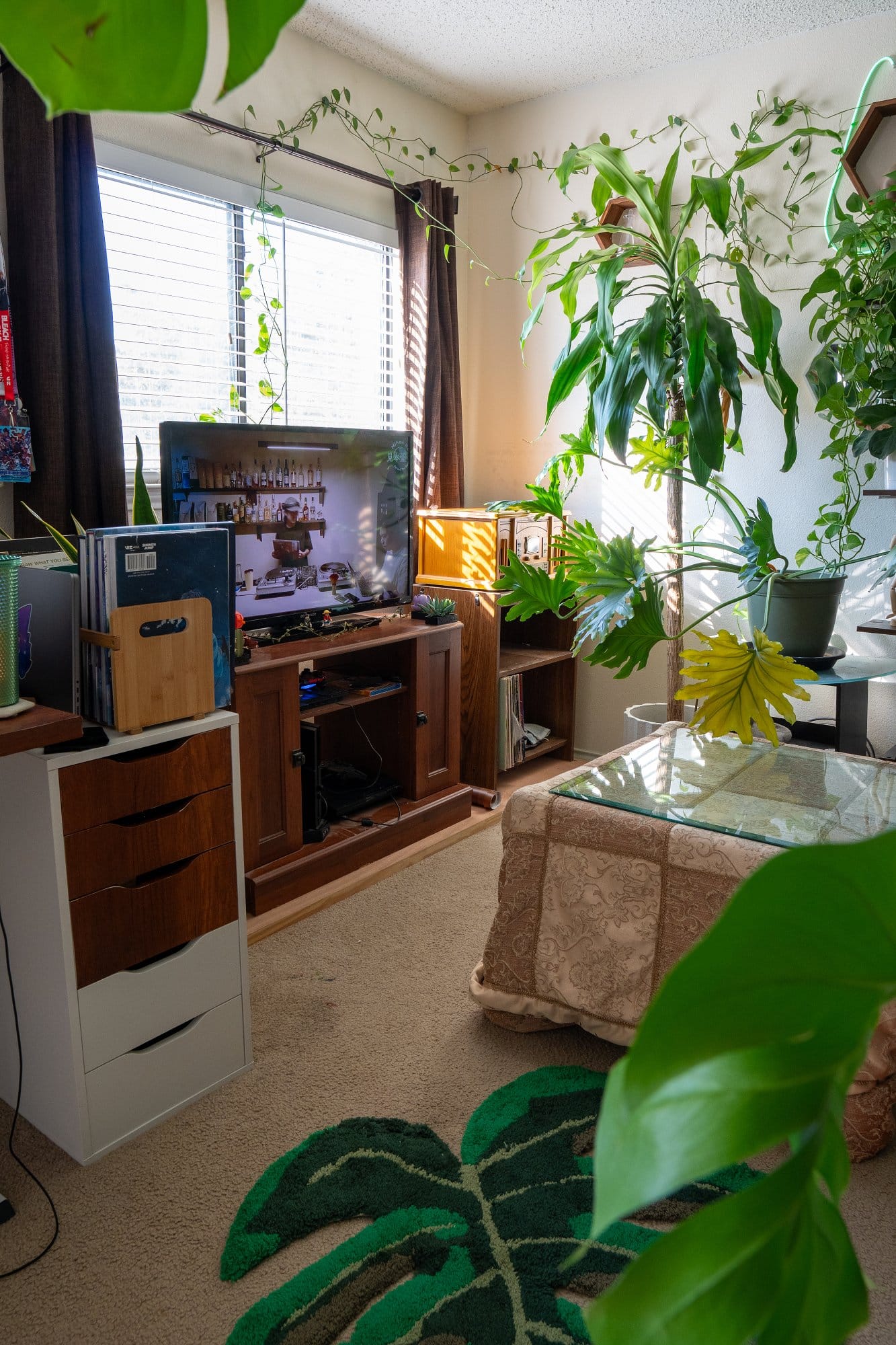
I spend a lot of time at my desk, probably ten to twelve hours a day, but between work and hobbies — both of which involve being on my computer — it makes sense.
I’ve been working from home since 2019, just before the pandemic hit, after reading The 4-Hour Work Week by Tim Ferriss and realising I wanted to change how I was living at the time.
At this point, I wouldn’t want to return to the office.
In my field of both support and development, there really is no good reason to.
I might be okay with a hybrid setup, but only if it were primarily remote and the office location was convenient — like downtown with full in-house amenities.
Your tips for working from home?
One of the most important things for me is having a structured routine.
I start each day with a solid morning routine, grabbing a healthy breakfast and setting intentions for the day.
Having a to-do list and planning tasks in time blocks helps focus on the most important tasks first and avoid feeling overwhelmed.
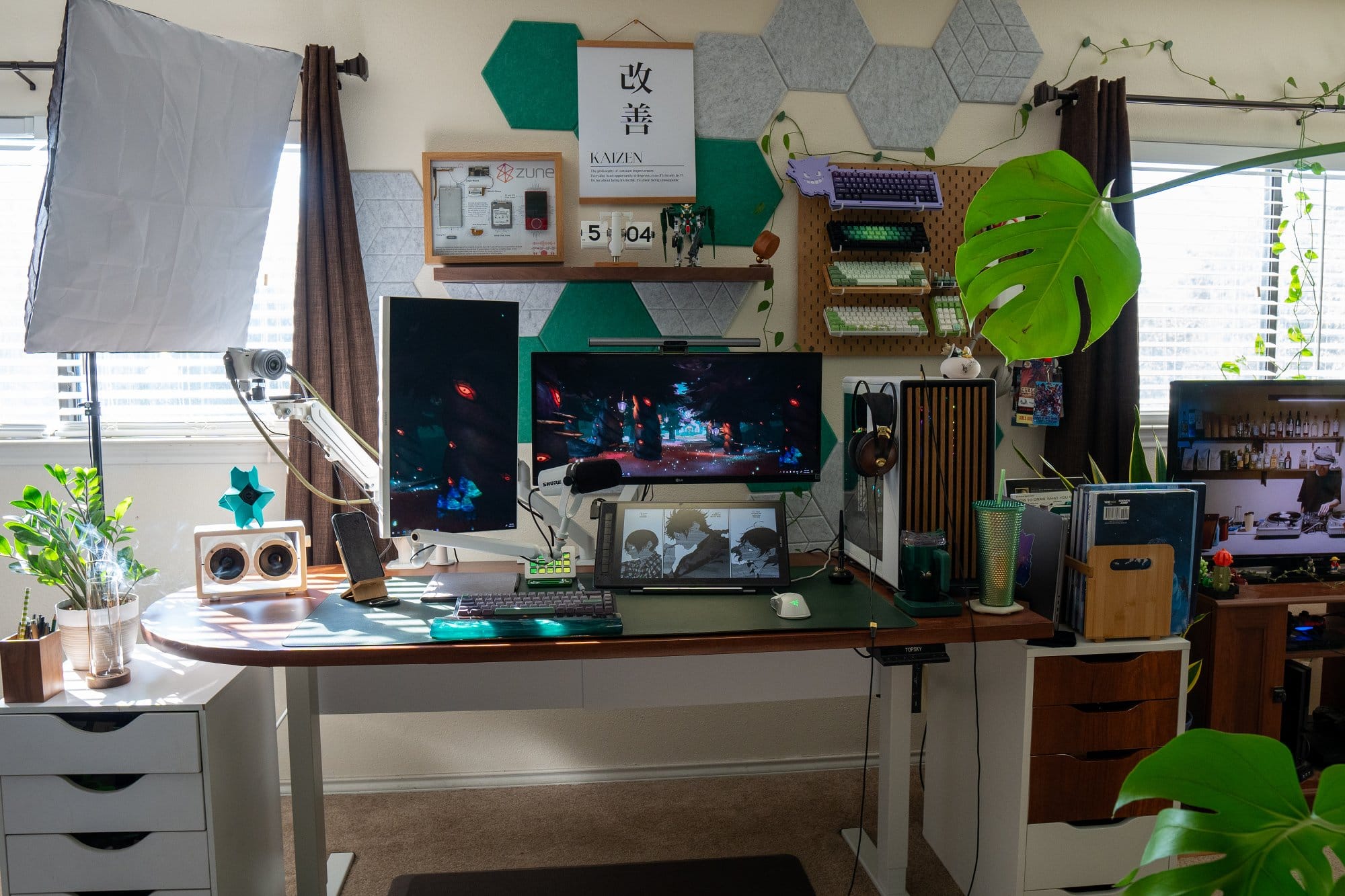
Having dedicated work hours, even though you’re at home, helps you stay in “work mode,” and when you’re done for the day, it’s important to “clock out” mentally to maintain personal time.
For anyone starting out, my biggest advice is to establish boundaries between work and personal time.
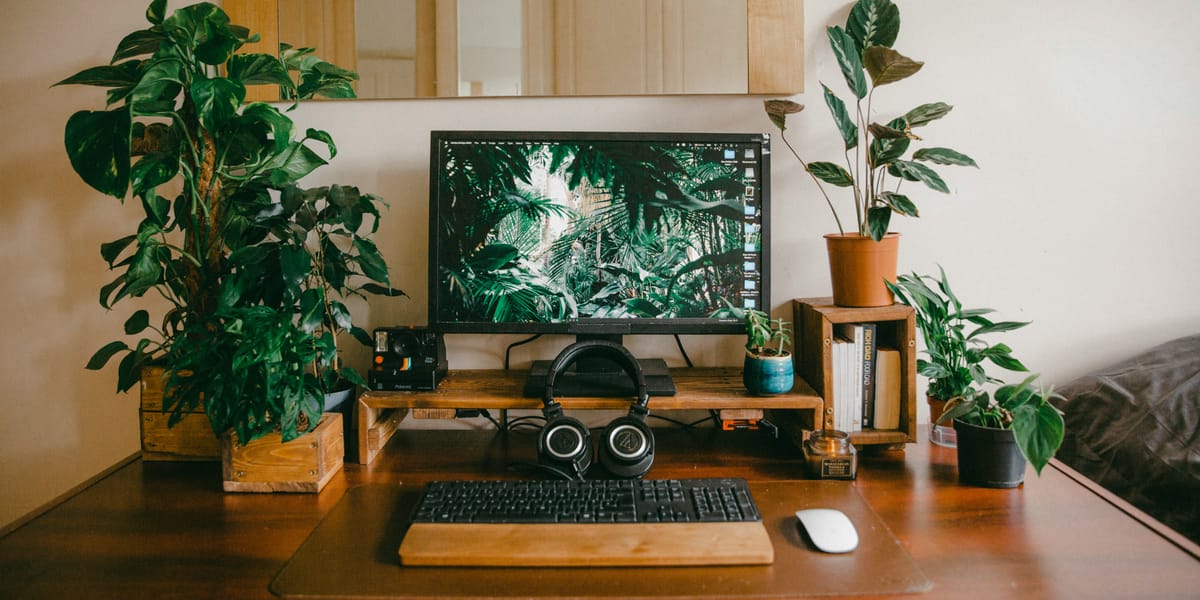
It’s easy to blur the lines, but having a separate workspace and clear hours for when you’re working versus off-duty can make a big difference.
Also, don’t forget to move — getting up to stretch, taking a walk, or even just stepping away from your desk for a few minutes can help refresh your mind and keep you more productive over time.
We’re a reader-supported publication. This article might contain affiliate links. It means we may receive a commission if you click a link and buy a product that our maker has recommended. The interview was done independently.

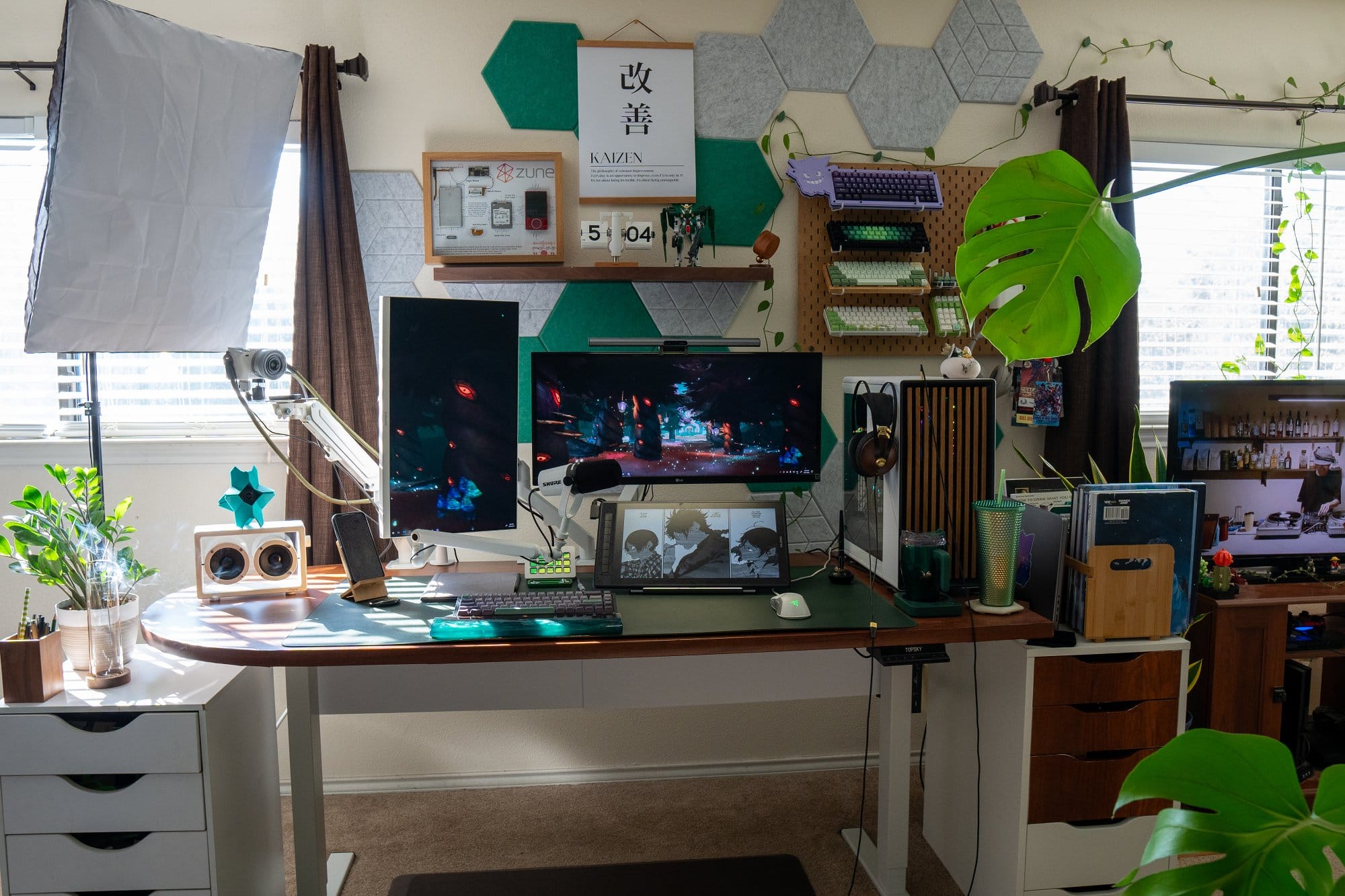

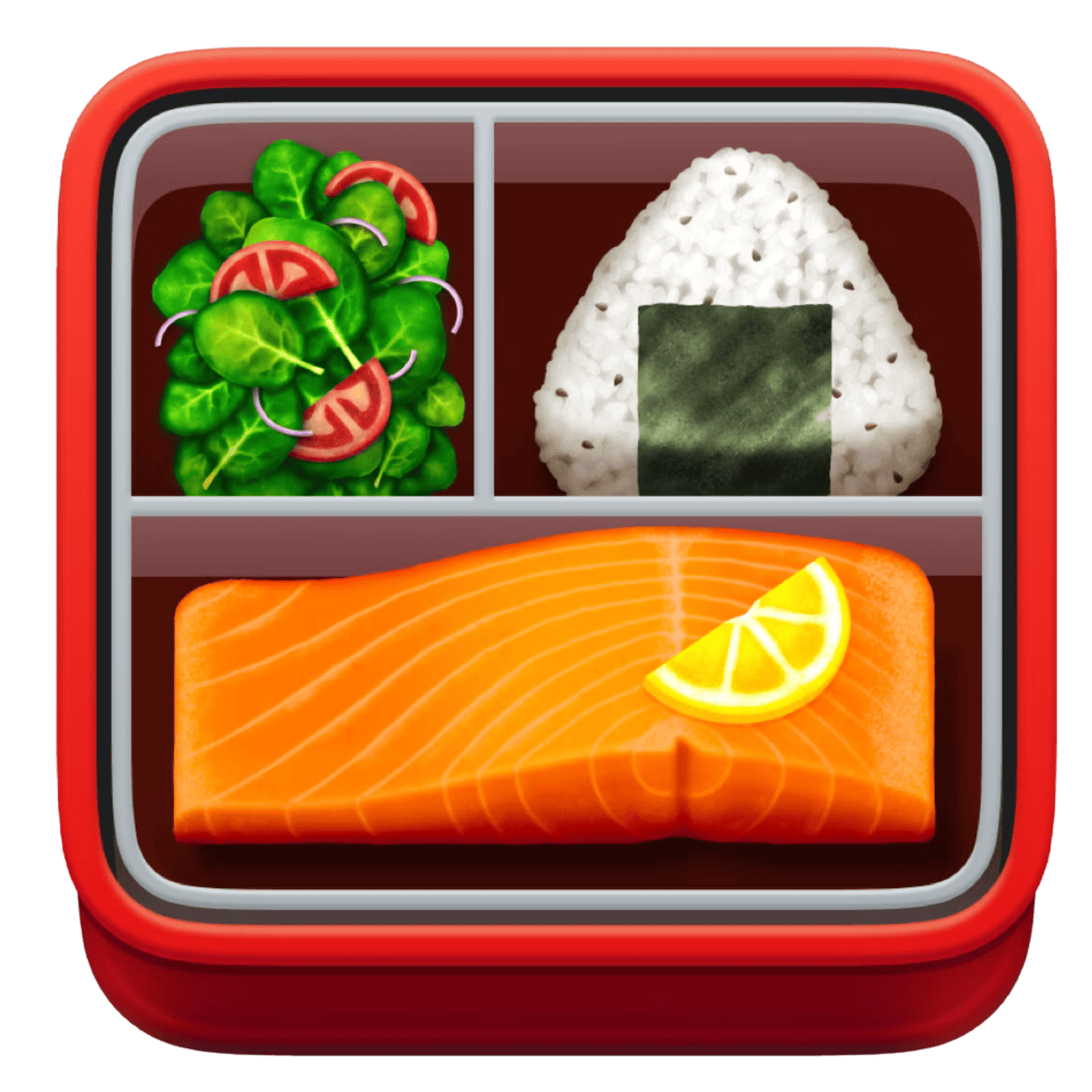
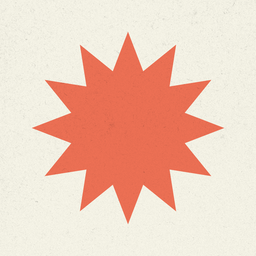
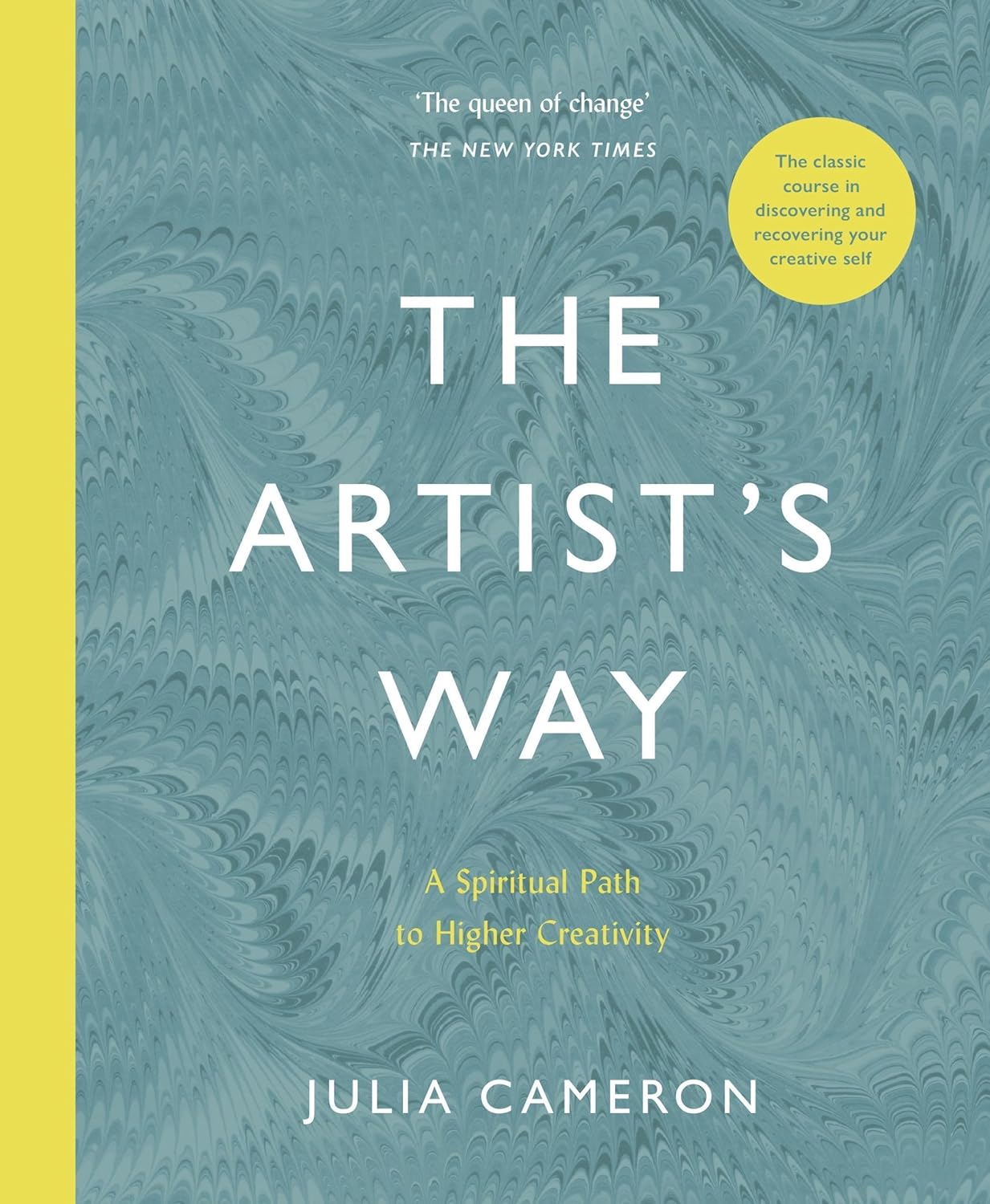




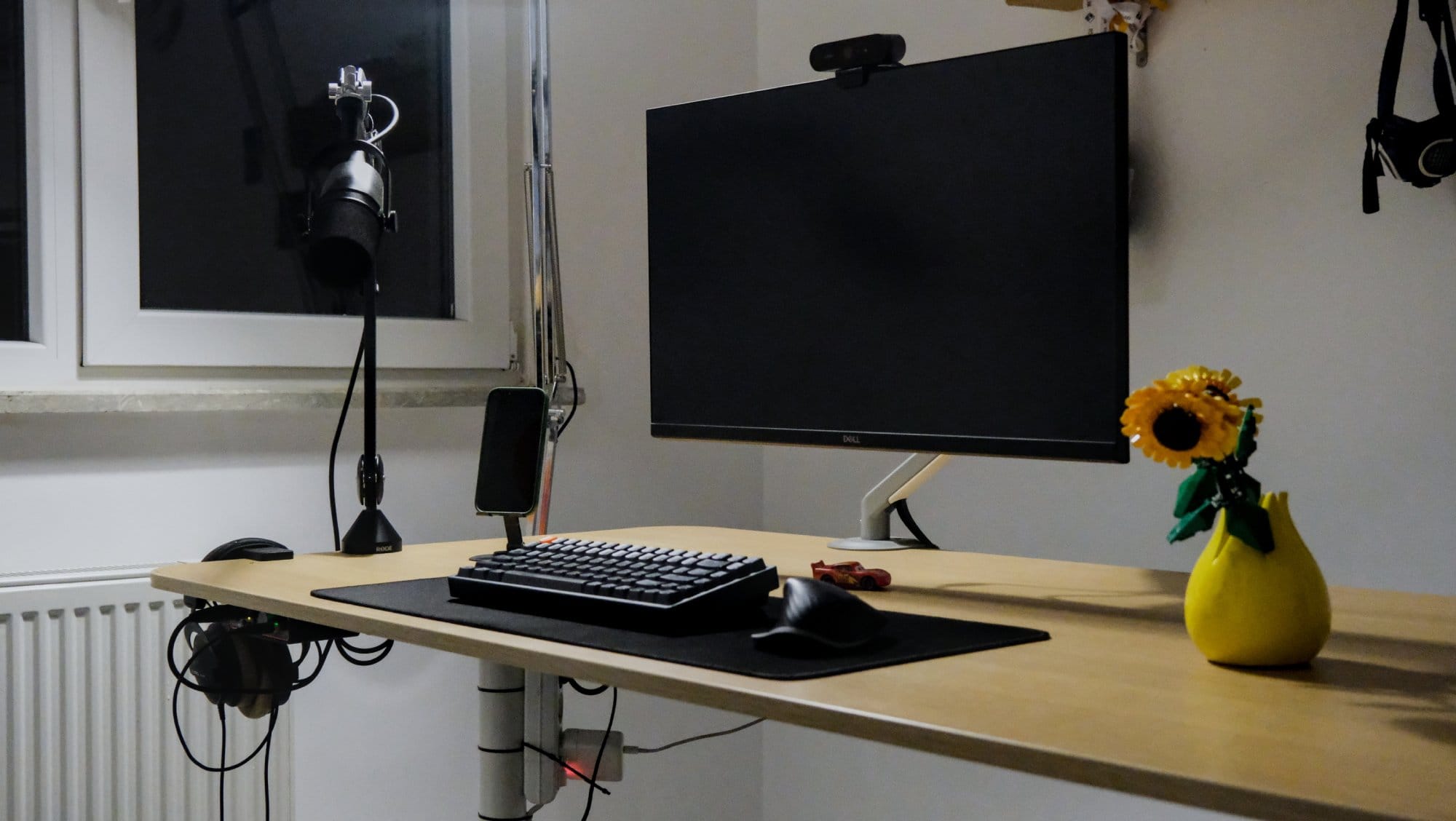

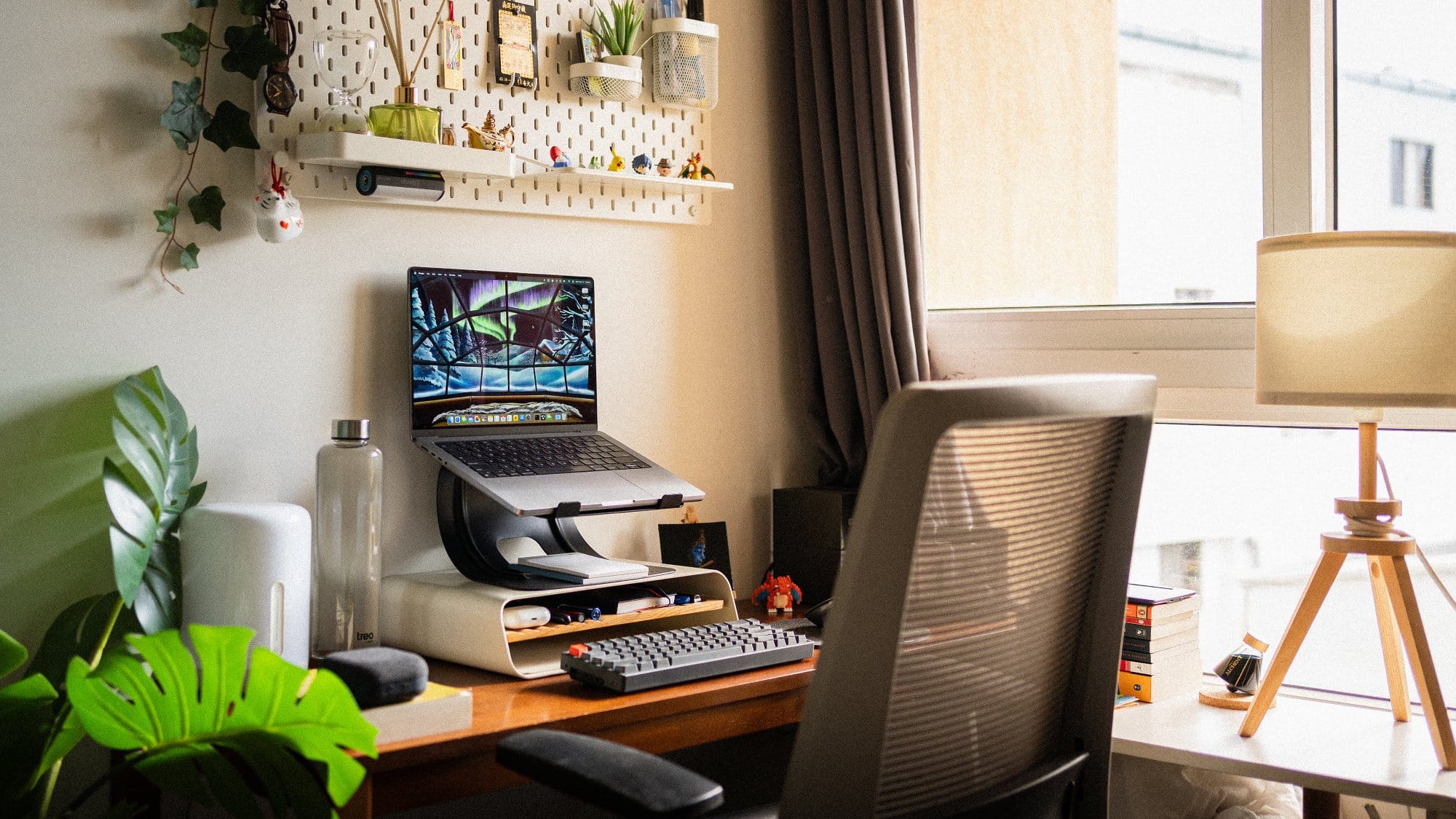
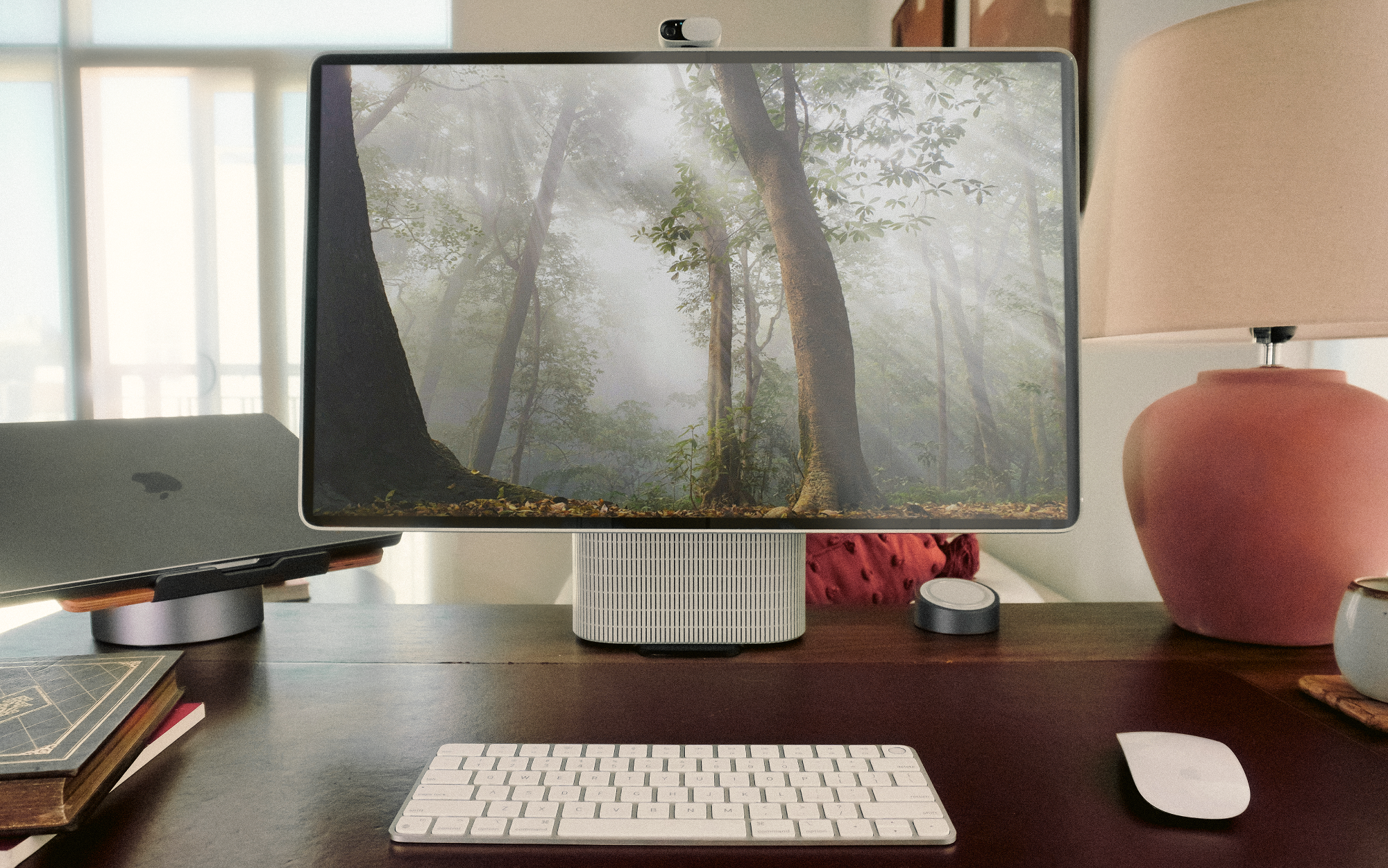
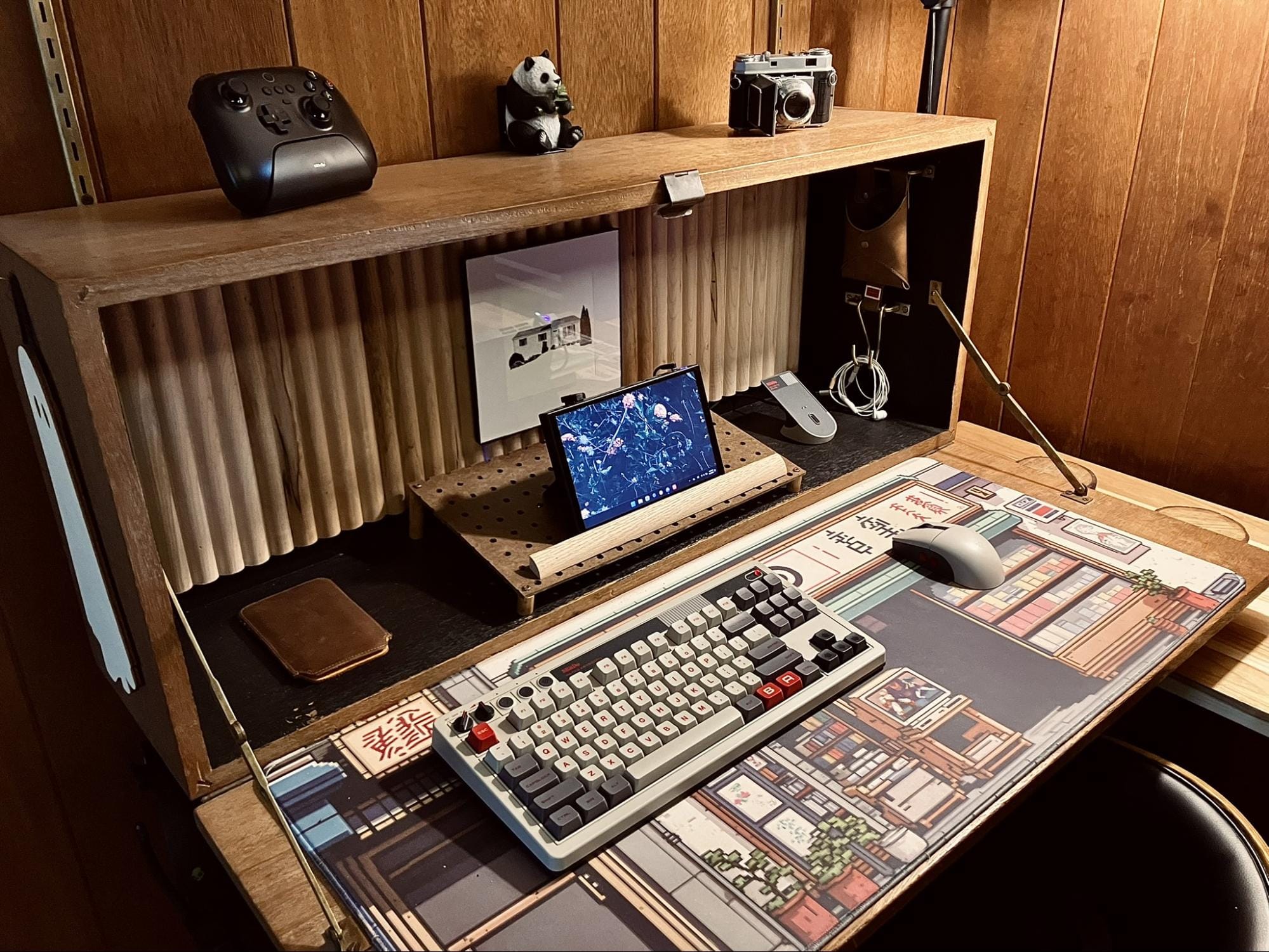

Discussion